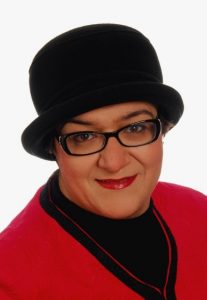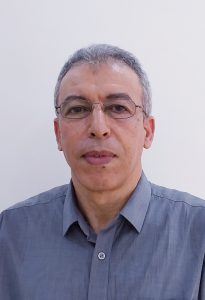Power Electronics Technology – Quo Vadis
The world is becoming more and more electrified combined with that the consumption is steadily increasing – at the same time there is a large transition of power generation from fossil fuel to renewable energy based which all together challenges the modern power system but also gives many opportunities. We see also now big steps being taken to electrify the transportation – both better environment as well as higher efficiency are driving factors. One of the most important technologies to move this forward is the power electronics technology which has been emerging for decades and still challenges are seen in the technology and the applications it is used. This presentation will be a little forward looking (Quo Vadis) in some exciting research areas in order further to improve the technology and the systems it is used in. Following main topics will be discussed
- The evolution of power devices
- Renewable Generation
- Reliability in power electronics
- Power Electronic based Power System stability
At last some discussions about other hot topics will be given.
Speaker:
Frede Blaabjerg (S’86–M’88–SM’97–F’03) was with ABB-Scandia, Randers, Denmark, from 1987 to 1988. From 1988 to 1992, he got the PhD degree in Electrical Engineering at Aalborg University in 1995. He became an Assistant Professor in 1992, an Associate Professor in 1996, and a Full Professor of power electronics and drives in 1998. From 2017 he became a Villum Investigator. He is honoris causa at University Politehnica Timisoara (UPT), Romania and Tallinn Technical University (TTU) in Estonia.
His current research interests include power electronics and its applications such as in wind turbines, PV systems, reliability, harmonics and adjustable speed drives. He has published more than 600 journal papers in the fields of power electronics and its applications. He is the co-author of four monographs and editor of ten books in power electronics and its applications.
He has received 33 IEEE Prize Paper Awards, the IEEE PELS Distinguished Service Award in 2009, the EPE-PEMC Council Award in 2010, the IEEE William E. Newell Power Electronics Award 2014, the Villum Kann Rasmussen Research Award 2014, the Global Energy Prize in 2019 and the 2020 IEEE Edison Medal. He was the Editor-in-Chief of the IEEE TRANSACTIONS ON POWER ELECTRONICS from 2006 to 2012. He has been Distinguished Lecturer for the IEEE Power Electronics Society from 2005 to 2007 and for the IEEE Industry Applications Society from 2010 to 2011 as well as 2017 to 2018. In 2019-2020 he served as a President of IEEE Power Electronics Society. He has been Vice-President of the Danish Academy of Technical Sciences.
He is nominated in 2014-2020 by Thomson Reuters to be between the most 250 cited researchers in Engineering in the world.
Smart Wearables for Comprehensively Monitoring Hand Signs in Human-Machine Interaction
The demand for wearable systems for human-human or human-machine interactions is nowadays continuously increasing. Several sensors can be adopted including biocompatible flexible sensors based on polymer carbon nanotubes composites (PCN), bio-impedance spectroscopy, surface electrical impedance myography (sEIM) and electrical impedance tomography (EIT), Electromyography (EMG) and inertial measurement units (IMU). Multi-modal systems, incorporating a variety of sensors and techniques, enhance the precision and dependability of continuously monitoring human activity, behavior, latency, and intentions. These systems not only enable cognitive feedback but also ensure increased accuracy and reliability. Wearable embodied solutions offer the ability to build body-attached sensor networks that meet compactness, accuracy and reliability requirements an enable body activity monitoring and communication even in complex interaction scenarios.
Speaker:
Kanoun, Olfa
Prof. Dr.-Ing.
Full Professor
Chair for Measuring and Sensor Technology (MST)
Chemnitz University of Technology
Olfa Kanoun graduated in electrical engineering and information technology from the Technical University of Munich, Munich, Germany, in 1996. She carried out her Ph.D. until 2001 and initiated a research group Impedance spectroscopy at the Institute of Measurement and Automation Technology, University of the Bundeswehr Munich, Munich. Since 2007, she has been a full professor in measurement and sensor technology with the Chemnitz University of Technology, Chemnitz, Germany. Her research addresses impedance spectroscopy, flexible physical and chemical sensors based on carbonaceous nanomaterials, and energy aware wireless sensors.
She has been leading several fundamental research projects and has been cooperating with more than 40 industrial companies. In 2022, he has been honored by the IEEE Instrumentation and Measurement Technical Award. In 2019, 2020 and 2021 she has been classified as one of the world’s top 2% of Scientists by Standford University (Mendeley Data). In 2018, she received the faculty course award of the IEEE Instrumentation and Measurement society. From 2016-2019 and from 2021-2024 she has been selected as an IEEE distinguished lecturer. She received several best paper awards of international conferences. She published more than 500 papers in peer-reviewed scientific journals, book chapters, and international conferences.
Renewable Energy Systems: Control and Monitoring Issues & Technology Trends and Challenges
Renewable energy technologies play an important role in sustainable development by reducing gas emissions, improving energy security and providing access to energy to remote areas. But, the intermittency of sunshine and wind cannot provide an on-demand power source 24 hours a day. Furthermore, solar energy and wind are practically unpredictable. So, there is inconstancy and uncertainty in generation and inconstancy in loads. Moreover, renewable energy systems reliability is essential and maintaining a continuous power flow is fundamental. Monitoring renewable energy systems balance may increase the reliability of these power supply systems. Elsewhere, several issues of grid connected renewable energy systems (voltage fluctuations, voltage imbalance, voltage rise and dips and reverse power flow, power factor correction, power quality) have to be overcome by implementing special procedure in the RES management strategy (LVRT, HVRT, active filtering, …). Furthermore, to deal with the intermittency of these sources (with a power generation depending on natural resources that are uncontrollable) one may develop energy storage systems with huge storage capability (which is not the case of the current pumped hydroelectric storage, battery storage system, green hydrogen production …). Elsewhere, the most challenge of RES is the transition to a less carbon-intensive and a more sustainable energy system. Moreover, the cost of upfront financing, grid connection requirements and lack of grid capacity become more and more constraining and restrictive; and needs to be alleviated and lightened.
In this session, the issues of monitoring and control of renewable energy systems and the techniques that can be used to provide solutions to reduce the intermittency constraint effect, enhance the power quality and to contribute to ancillary services of power systems (AGC, AVR…), will be addressed. Besides, current technology trends and challenges of RES will be discussed to show how to improve the wide spreading of renewable energy technologies by transporting electricity from areas where solar and wind energy are abundant to other areas, storage of energy from intermittent sources such as wind and solar, and performing a more flexible and efficient electrical smart grid that can promote the use of renewable electricity.
Speaker:
Lakhdar MOKRANI
PhD, Full Professor
Analysis, Control and Management of Power and Energy Systems Laborator
(LACoSERE), University of Laghouat 03000 DZ, Algeria.
Mr MOKRANI Lakhdar was born in Batna – Algeria in 1970. He is actually a Full Professor at the Electrical Engineering Department, Laghouat University, Algeria. He has participated and has led several research projects in control and management of renewable energy systems and electrical drives. He is one of the founders of the ‘Analysis, Control and Management of Power and Energy Systems Laboratory – LACoSERE’ and the leader of the ‘Control and Energy Management of Electrical Systems CGESE’ research group at the same Laboratory. He has supervised many PhD Students and he is an invited reviewer of many scientific journals and was a member of the scientific and steering committees of several conferences. He was a visiting professor in 2012, 2016 and 2018 at Polytechnic University & University Institute of Technology (Nantes, France). He participated in many international Master committees (in France) and PHD dissertations jury in Algeria. He has published more than 120 between international journal and conference papers.
His main research interests include optimized CAD of electrical machines, electrical drives control



